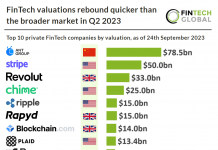From: RegTech Analyst
All it takes to fool facial recognition software is to put on a printed mask, according to new research.
Apple, Alipay, airports and ATMs are increasingly using facial recognition software to make travelling and payments safer.
However, new research from artificial intelligence firm Kneron has revealed that the technology has several vulnerabilities.
They have been able to fool facial recognition solutions across three continents by using a highly detailed printed mask.
In China, the researchers fooled Alipay and WeChat’s software. In Europe, the mask fooled the passport control gate at Schiphol Airport in Amsterdam.
Apple Face ID and Huawei’s systems passed the test.
“Technology providers should be held accountable if they do not safeguard users to the highest standards,” Albert Liu, CEO of Knernon, said in a statement seen by Business Insider. “There are so many companies involved that it highlights an industry-wide issue with substandard facial recognition tech.”
Facial recognition has become one of the many new ways financial firms are trying to protect themselves.
London-based United Trust Bank, Spanish CaixaBank and BBVA, Turkish AKbank, the National Bank of Serbia and the Taiwanese E. Sun Commercial Bank are just some of the institutions tapping into the technology to boost their security.
Because facial recognition solutions are proving more popular, competition in the market is going to be fierce.
That is one of the reasons why Chinese companies made headlines the other week when they tried to shape the international standard of facial recognition software.
As RegTech Analyst reported in the beginning of December, ZTE, Dahua and China Telecom were among the companies attempting to shape the UN’s standard for the software.
Copyrght © 2019 FinTech Global











